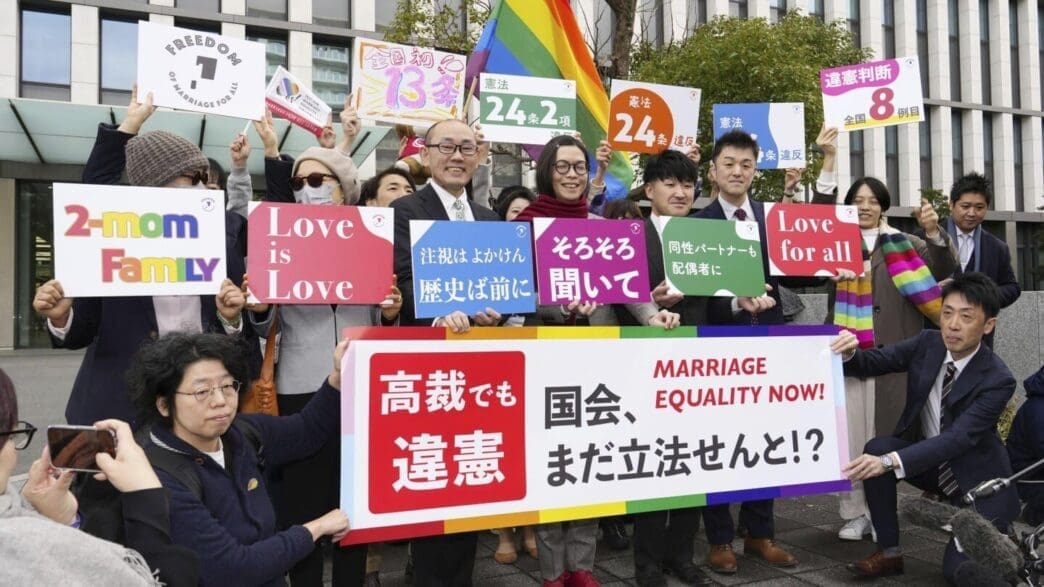A landmark ruling in Japan’s Fukuoka High Court has declared the government’s refusal to recognize same-sex marriage as unconstitutional, adding momentum to the LGBTQ+ movement for marriage equality in the country.
The Fukuoka High Court’s decision marks the eighth win for plaintiffs challenging the ban on same-sex marriage since the launch of lawsuits in 2019. Presiding Judge Takeshi Okada articulated that the current civil law provisions infringe upon the fundamental right to pursue happiness, as guaranteed by Article 13 of Japan’s Constitution. Furthermore, the ban contravenes constitutional guarantees of equality and individual dignity, emphasizing that there is no longer a legal or societal basis to deny same-sex couples the right to marry.
The ruling is particularly significant in light of Japan’s political landscape. The Conservative Liberal Democratic Party, which has historically resisted liberal policies, including those supporting gender equality and sexual diversity, suffered a major electoral defeat in October. This shift in political power dynamics increases the likelihood of new compromises on marriage equality, bolstered by public support for the movement.
Prime Minister Shigeru Ishiba, who is seen as a centrist, has expressed an understanding of the hardships faced by same-sex couples and hinted at a willingness to explore legislative changes. His recent comments to parliament suggest a potential shift in government stance, although it remains to be seen how this will manifest amidst resistance within his party.
Since 2019, over 30 plaintiffs across five regions of Japan have argued against the civil law provisions that limit marriage to heterosexual couples, thus denying same-sex couples equal rights such as inheritance and tax benefits. Friday’s case involved three same-sex couples from Fukuoka and Kumamoto, advocating for equal privileges and social recognition.
While there are positive signs, there are still obstacles to achieving full marriage equality in Japan. Two more high court decisions are expected in Osaka and Nagoya in March, with legal representatives optimistic given the pattern of recent rulings. Lawyers like Takako Uesugi, representing plaintiffs in Tokyo, remain hopeful, urging the government to legalize same-sex marriage without further delay.
Social and business support for marriage equality in Japan has grown considerably despite continued discrimination in various spheres. As the only member of the Group of Seven industrialized nations that does not recognize same-sex marriage, Japan’s failure to provide legal protections for LGBTQ+ couples stands in stark contrast to international norms. Efforts towards legal recognition, though improved by non-binding partnership certificates in municipalities, are deemed insufficient by activists seeking substantial legal reform.
The Fukuoka High Court’s decision to rule Japan’s ban on same-sex marriage as unconstitutional is a pivotal moment for LGBTQ+ rights in the country. With rising public support and potential political shifts, there is cautious optimism for legislative changes that will ensure equality and dignity for same-sex couples.
Source: Apnews








